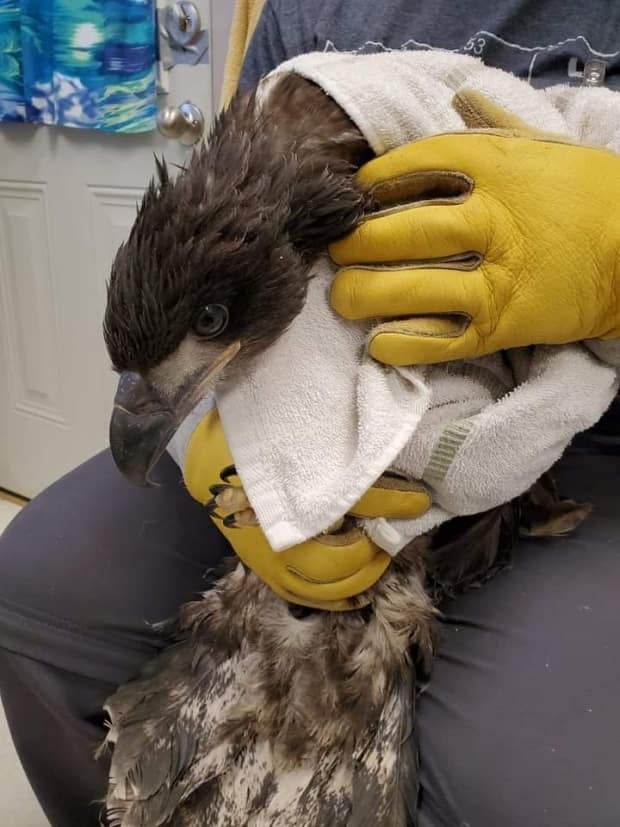Vancouver Island locals bring fish to feed hungry eaglets who left nests early due to heat wave

With bags of salmon and trout, the people of Merville, B.C., have come to the aid of a number of hungry eaglets who are being cared for at a bird rescue centre.
The Mountainaire Avian Rescue Society is currently caring for 16 eagles — many of them juveniles who leapt out of their nests too early in order to escape the stifling temperatures of the Pacific Northwest heat dome in late June.
The record-breaking heat wave saw temperatures in the high 30s for Vancouver Island and B.C.'s South Coast. While the number of heat-related deaths among people is still being tallied — the latest number suggests 815 people died — wildlife across the province were also severely impacted or killed.
Kiersten Shyian, the assistant manager of wildlife rehabilitation, says many of the juvenile eagles were brought to the centre after being spotted on the ground, skinny and dehydrated after leaving their nests.
"It [was] just getting so hot in [their nests], they're just trying to find a way to get away from that temperature, so they are abandoning their nest early when they're not quite ready yet," Shyian said.
Shyian said this is the most eagles they've ever cared for at one time.
"We have 16 in total, and 11 of them are babies with a much higher appetite than the adults," said Shyian.
Call for help on social media
The centre put out a call for fish to feed the hungry birds on social media. Each eagle is typically fed 175 to 200 grams of fish per feeding, three to four times a day.
"With that many eagles, we're looking at a couple of kilos of fish per day," she said.
Locals delivered salmon and trout — all within days of the plea going up.
"It's been incredible," Shyian said.
Shyian said the hope is to eventually release the juveniles back into the wild, usually in the very area they were found.
In the meantime, the eaglets are being fed fish, and being "mentored" by adult resident eagles at the centre.
"We usually put younger eagles with [the resident adults] so that they can kind of learn how to be an eagle from them," said Shyian.
Once they are more developed and flying well, they will be released — something Shyian says will happen in the next couple of weeks or months.
"Sometimes they take off right away and sometimes they hang out for a couple of minutes, look around," she said.
"You never really get tired of seeing a bird that you've helped to return to the wild."

